Caecilia Mediana, Jakarta – The risk of layoffs (PHK) is expected to continue to expand in 2026 potentially holding back new hiring. This situation will increase the social burden on society.
Documents containing the term 'Apindo'
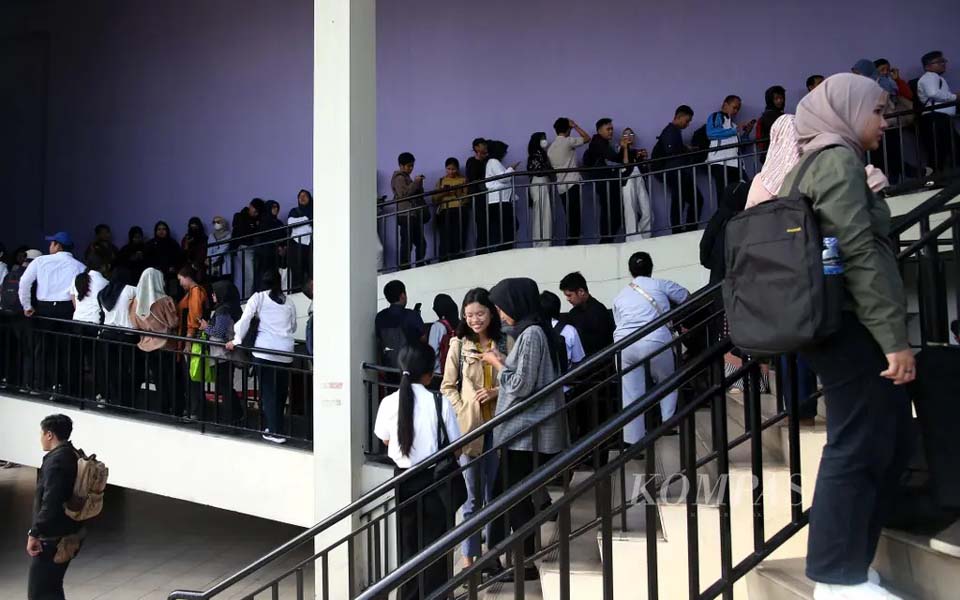

Fika Nurul Ulya, Jessi Carina, Jakarta – Ahead of National Labour Day which falls tomorrow, House of Representatives (DPR) Deputy Speaker Sufmi Dasco Ahmad together with officials from the Presidential Palace gathered with trade union leaders during an event at the Nusantara IV Building in the parliament

Laid off workers: Help Mr Minister (Labour Minister Yassierli dressed in clown suit in back of car)

Jakarta – The environmental non-government organisation (NGO) Trend Asia has criticised the government's decision to remove coal ash from the category of hazardous and toxic wastes (B3). According to the group, the move will only benefit business and elite groups.
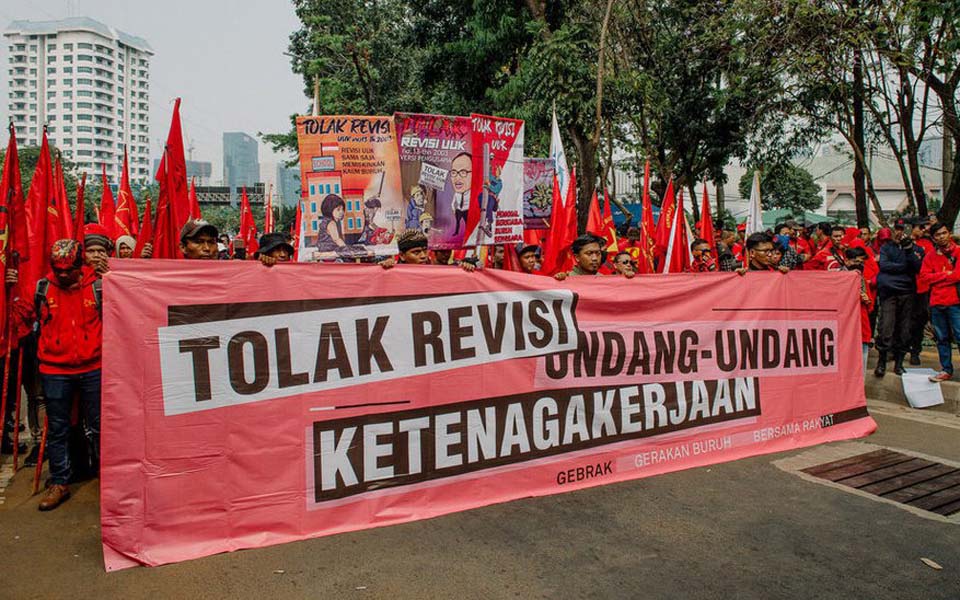
Jakarta – Protesters from the United People’s Struggle (KPR) say that the planned revisions to Law Number 13/2003 on Labour will further burden workers in Indonesia because it will introduce greater flexibility to employment status and wages.
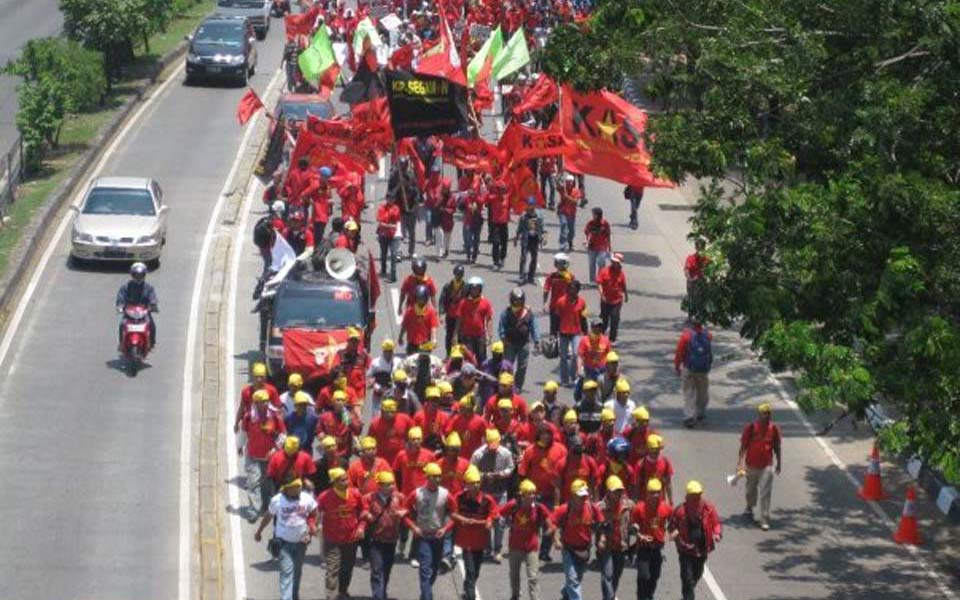
Sherr Rinn – The Indonesian Labour Movement (GBI), which is made up of the Indonesian Metal Trade Workers Federation (FSPMI)/Confederation of Indonesian Trade Unions (KSPSI), the Confederation of the All-Indonesian Workers Union (KSPSI), the Confederation of Prosperity Labour Unions (KSBSI), the Indonesian Labour Union Confederation Preparatory
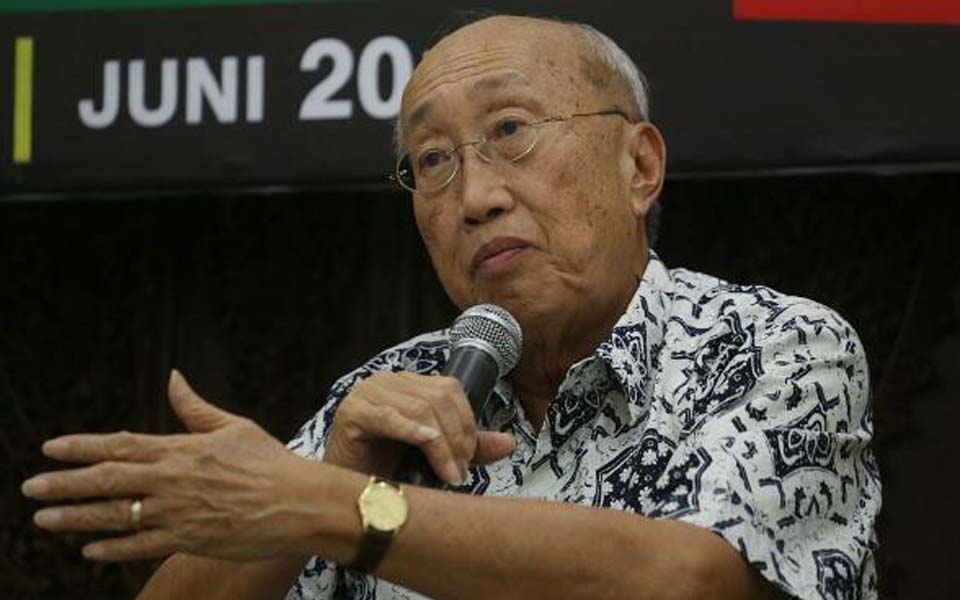
Anne Maria, Batam – The momentum of a friendly gathering with Indonesian Employers Association (Apindo) general chairperson Sofyan Wanandi at the inauguration of Apindo’s Riau Islands provincial leadership board (DPP) was used by the new DPP chairperson Cahya to introduce the Bima Sakti Guard.
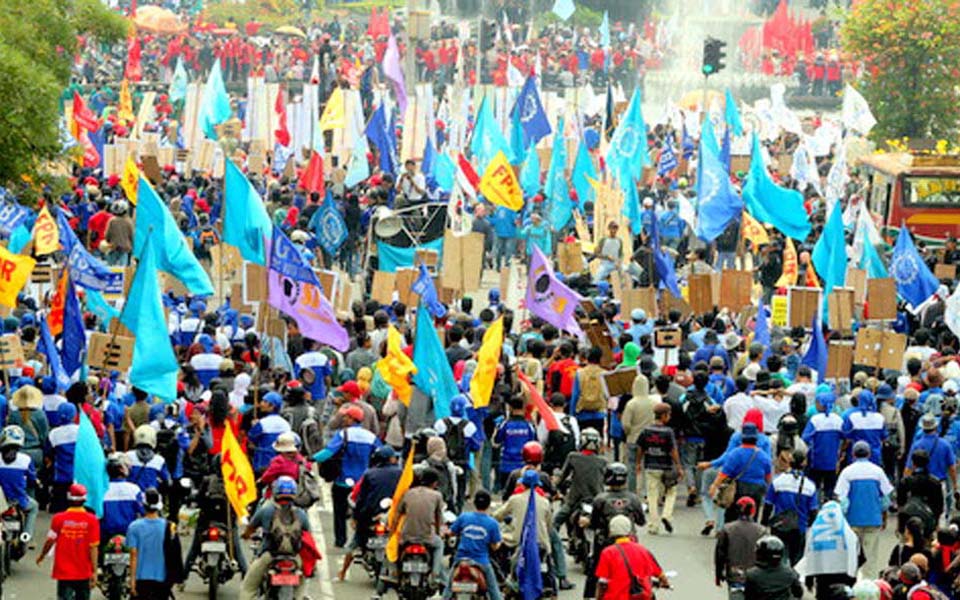
Jakarta – The Confederation of Indonesian Trade Unions (KSPI) and several other labour associations have emphatically rejected the issuance of a presidential instruction (Inpres) on limiting wage rises in order to stimulate the economy and overcome a slump in the value of the rupiah.
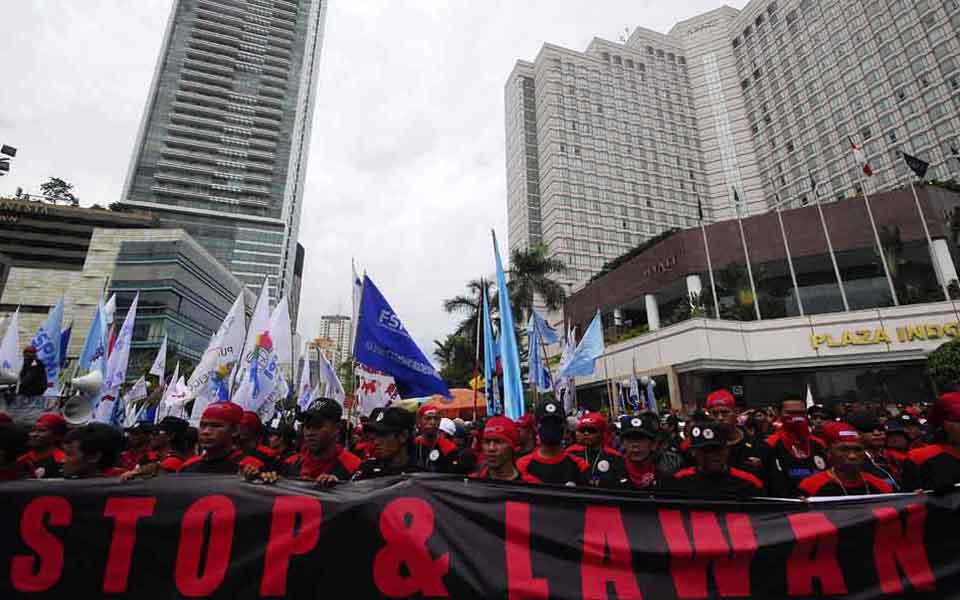
Alsadad Rudi, Jakarta – The Cross-Factory Labour Forum (FBLP) disputes the claim that four South Korean companies have left Jakarta. The companies that were cited as having closed, PT Hansol 1, PT Hansai 5, PT Winner 3 and PT Olimpic, are still operating in the Nusantara Bonded Zone (KBN) in the Cakung industrial area of East Jakarta.

Sherr Rinn – Between 2010-12 there was an awakening of the Indonesian labour movement that can be seen in the writings of people such as Danial Indrakusuma, Rahmat, Tarikh, Hidayah and Rekomendasi.
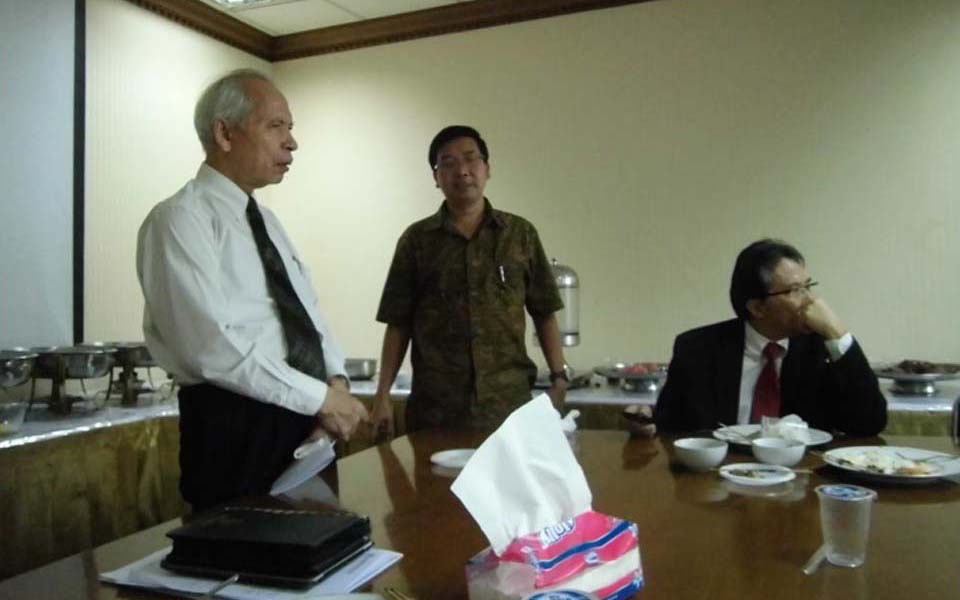
Jakarta – Labour observer Professor Dr. Payaman Simanjuntak has warned that a number of trade unions in Indonesia are being provoked by international trade unions, primarily from European countries and the United States, to challenge employers and the government by means of strikes.

Jakarta – Economic growth, which reached 6.4 percent in the second quarter of 2012, is largely being enjoyed by the middle- and upper-class, because it is not quality growth.
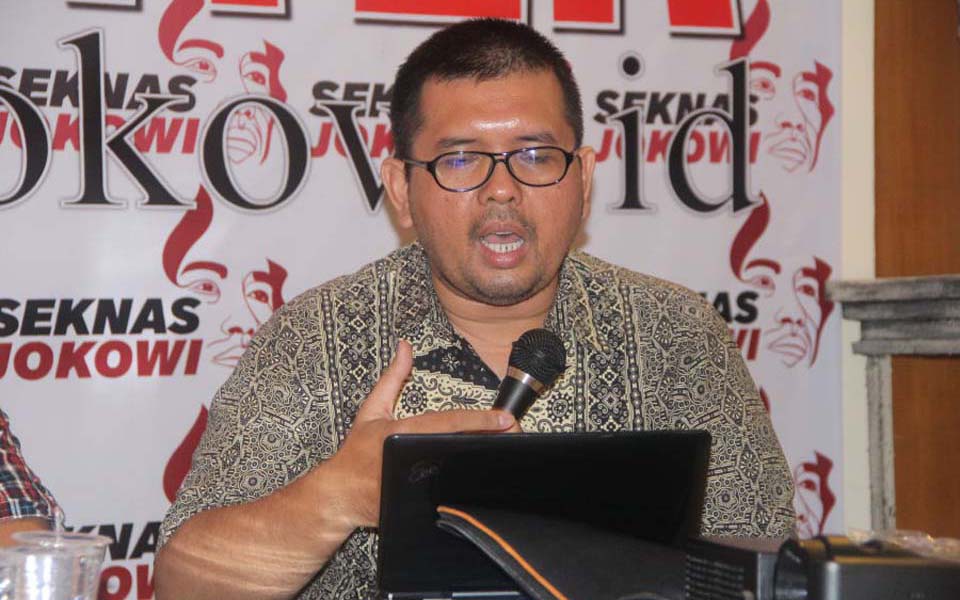
Jakarta – The government should be more serious about controlling the rising rate of inflation. If the situation continues, people’s purchasing power, especially fixed-income labor groups, will continue to decline and impact on national consumption levels.
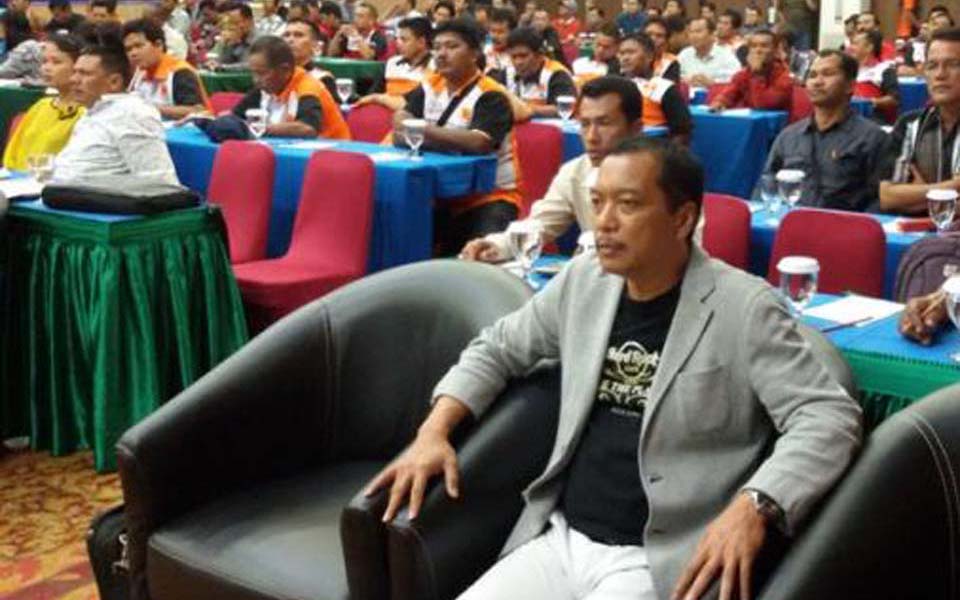
Jakarta – The number of permanently employed workers in the formal sector is steadily declining and currently stands at only 35 percent of all formal workers. This has occurred in concert with Law Number 13/2003 on Labour (UU No 13/2003), which allows for the employment of contract labour from other companies, or outsourcing.

Jakarta – The increasing use of contract labour is undermining the strength of national trade unions and making it difficult for workers to struggle for decent working conditions.

Nurseffi Dwi Wahyuni, Jakarta – As many as 500,000 casual, contract and permanent workers will loose their jobs if no orders come in to ensure industrial activity continues.
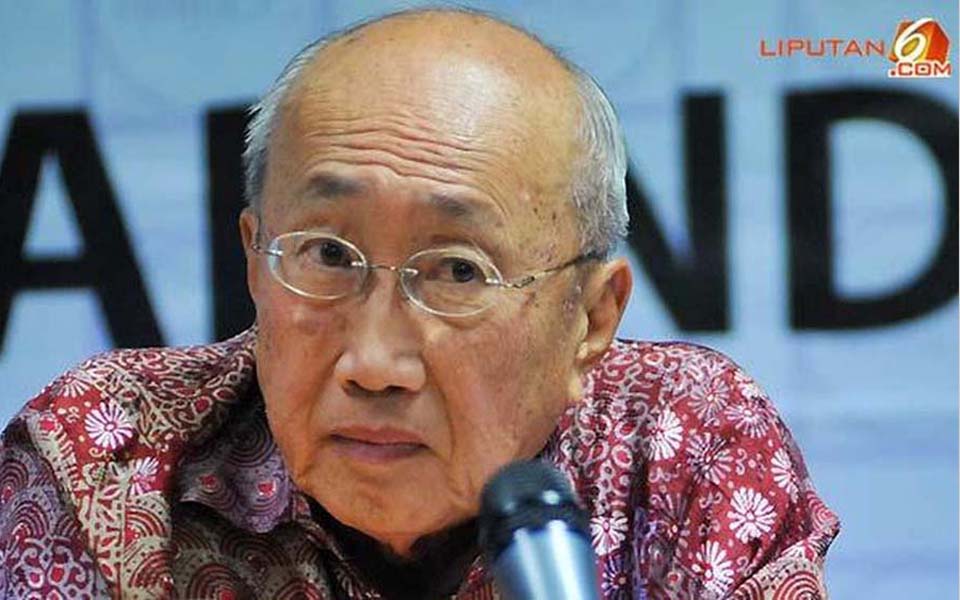
Jakarta – The number of workers that have already been dismissed appears to be extraordinarily large. At least, this is the version being given by employers. The Indonesian Employers Association (Apindo) has stated that hundreds of thousands of workers have quietly been losing their jobs – a euphemism for being sacked (PHK).
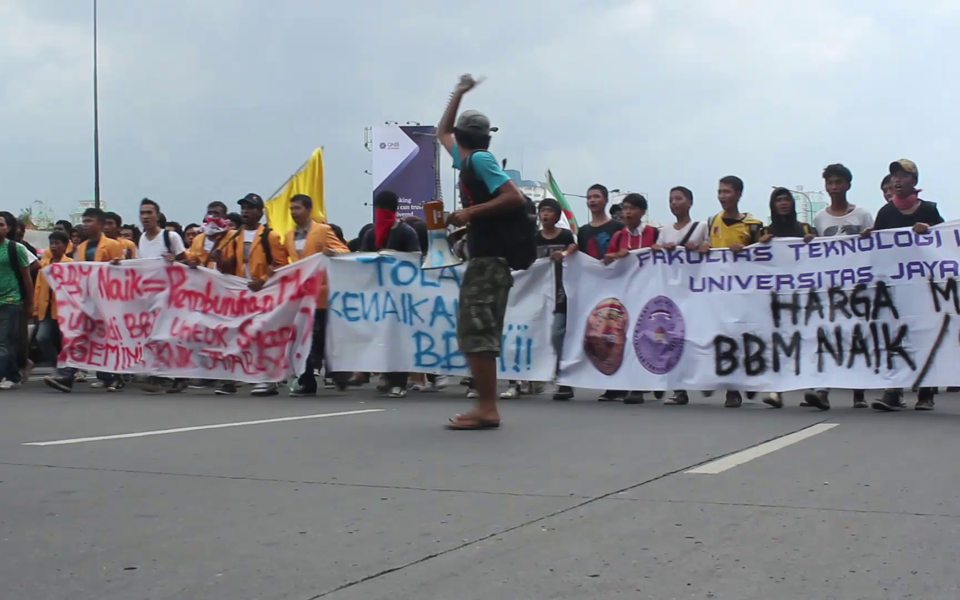
The battle drum of the Indonesian people’s resistance to the planned fuel price increases has been sounded – students, the urban poor, workers, farmers and women in every corner of the country are daily holding actions that are growing and uniting day by day.
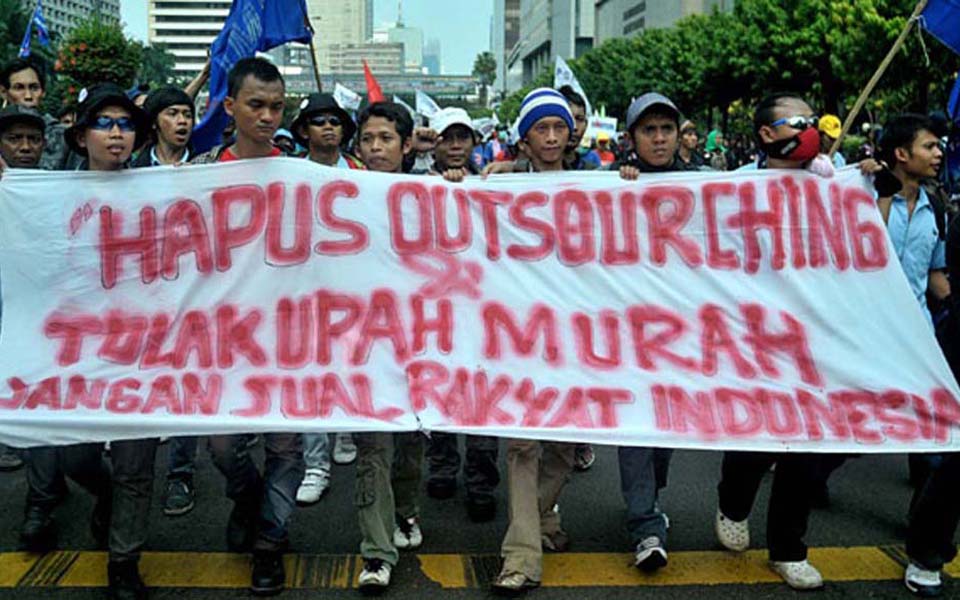
Basic changes in the struggle by the working class before and after reformasi represent a shift from a struggle for wages and conditions to a struggle for job security.

Iwan Setiyawan, Jakarta – Workers and employees in Indonesia are still not free to associate. This can be seen from the small number of trade unions in the workplace, that is around 5.8 percent out of a total of 189,000 companies in Indonesia.




